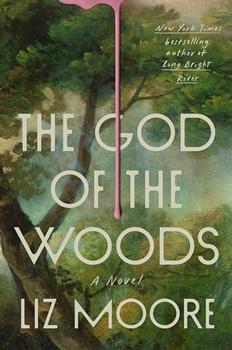Author Biography | Interview | Books by this Author | Read-Alikes

Both critically acclaimed and loved by readers, Sue Miller is recognized internationally for her elegant and sharply realistic accounts of the contemporary family. Her books have been widely translated and published in 22 countries around the world. The Good Mother (1986), the first of her ten novels, was an immediate bestseller (more than six months at the top of the New York Times charts). Subsequent novels include three Book-of- the-Month main selections: Family Pictures (nominated for a National Book Critics Circle Award), While I Was Gone (an Oprah's Book Club selection), and The Senator's Wife. Her latest novel is The Arsonist. Her nonfiction book, The Story of My Father, was heralded by BookPage as a "beautiful, spare memoir about her relationship with her father during his illness and death from Alzheimer's disease." Her numerous honors include a Guggenheim and a Radcliffe Institute Fellowship. She is a committed advocate for the writer's engagement with society at large, having held a position on the Board of PEN-American Center. For four years she was Chair of PEN New England, an active branch that worked with writing programs in local high schools and ran classes in prisons. She has taught fiction at, among others, Amherst, Tufts, Boston University, Smith, and MIT.
This bio was last updated on 08/28/2020. In a perfect world, we would like to keep all of BookBrowse's biographies up to date, but with many thousands of lives to keep track of it's simply impossible to do. So, if the date of this bio is not recent, you may wish to do an internet search for a more current source, such as the author's website or social media presence. If you are the author or publisher and would like us to update this biography, send the complete text and we will replace the old with the new.
Since The Good Mother was published in 1986, your novels
have chronicled a tumultuous time in American family life. What's drawn you to
this material?
Probably the tumult itself. I think it's fair to say that's what a fiction
writer is most often drawn to -- tumult of one kind or another; and in that
sense the family in the last quarter century seems to me to be among the most
fascinating of human social or economic inventions--more than business or real
estate, no matter what Tom Wolfe says, more than the church or the law or the
hospital. It is of course, open to and impinged on by all of those -- another
great draw for the writer -- and also by belief and passion and irrationality
and need.
It seems both more fragile and more important an institution than it ever has
been, more multifarious, more invented as it goes along, more necessary. It's
been too easily dismissed as the subject or setting for serious fiction;
American fiction in particular was for a while pleased to think it had moved
beyond the family, left it behind as a kind of low topic, suited only to women
and children. But it comes around, again and again, as it has throughout
fiction's history.
You have been ...




Your guide toexceptional books
BookBrowse seeks out and recommends the best in contemporary fiction and nonfiction—books that not only engage and entertain but also deepen our understanding of ourselves and the world around us.